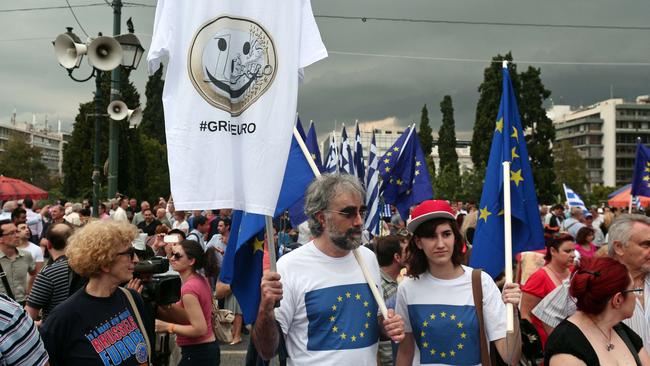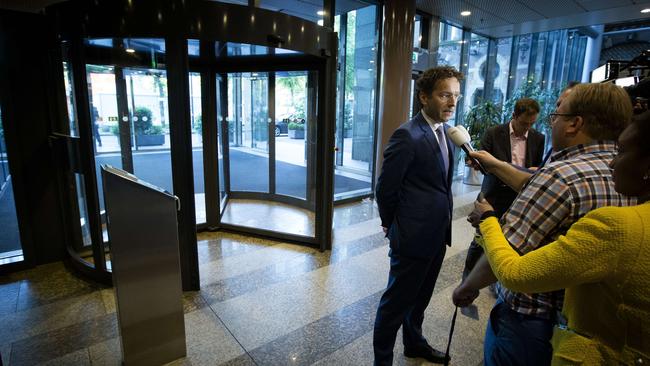Where Greece could restart talks with creditors
GREECE has defaulted on its repayments to the IMF after talks with creditors broke down. Could this be a way out of the crisis?

GREECE has defaulted on its repayments to the International Monetary Fund and its bailout program has expired — leaving Athens to seek a third support package as its banks and stock market remain closed.
The country’s left-wing government is hoping to continue talks on a proposed new package, picking up from where the negotiations left off last week — before an impasse prompted Prime Minister Alexis Tsipras to call a referendum.
Here’s a look at the differences between Greece and its creditors.
PENSIONS: They were the major sticking point in the late stages of negotiations — and take up 16 per cent of GDP in annual government expenditure. They also form the backbone of the country’s welfare safety net.
Lenders want faster elimination of early retirement rights, across-the-board cuts in yearly expenditure and the phasing out of a top-up fund for low-earners.
The government made late concessions before the talks collapsed and is likely to follow with even deeper cuts if a new agreement is reached.

SALES TAX: Greece had agreement to raise additional money in sales tax revenue, but disagreed on how that goal should be reached. Athens worried that demands to slap additional tax on hotels and catering would hit its vital tourism industry, while ending tax exemptions for Greek islands would help tap money spent in busy holiday resorts but hurt others in remote island areas where goods are already expensive and state services are rudimentary.
Greece and creditors were close to agreement on Athens’ proposal to simplify existing rates to 6, 13, and 23 per cent.
“We were very close to agreement on this. That’s why we were disappointed the way the referendum was called,” a European official said hours after the talks broke up.
BUSINESS TAX: Prime Minister Alexis Tsipras left-wing government was elected on a pledge to relieve pensioners and wage-earners from austerity taxes that pushed hundreds of thousands of people into poverty. Tsipras wanted to shift the tax burden to profitable companies, but was forced to extend emergency the taxes, while the IMF demanded more modest business tax increased, arguing high levies would hurt chances of recovery.
In a state TV interview late Tuesday, Deputy Prime Minister Giannis Dragasakis conceded the government was “obliged to take more painful measures” but would keeping working to make the burden of austerity fairer.

WHAT ELSE? Creditors have a long list of other demands that include doubling proposed annual defence spending cuts to 400 million euros ($450 million) per year — a demand the country’s defence minister said this week that Greece could not accept.
Another politically sensitive demand concerns reforming labour laws that would make it easier for businesses to impose collective dismissals. The government — which wants to restore the minimum wage to pre-crisis levels — had said it had convinced creditors to delay labour reforms until the economy had recovered.
But Dragasakis on Tuesday said that the government was considering making additional concessions in six areas, including pensions and labour rules.




